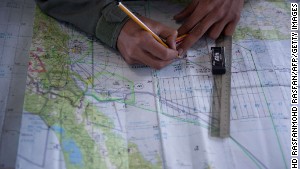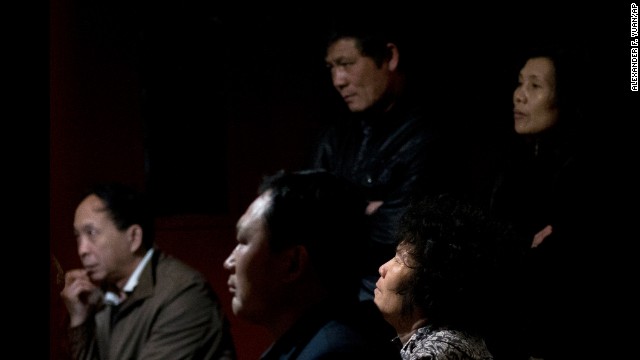Malaysian Prime Minister Najib Razak told
reporters over the weekend that "deliberate" action by somebody on board
accounted for Malaysia Airlines Flight 370 veering off course.
Could the mystery of Malaysia Airlines 370 then be explained as an act of terrorism?
To answer that you have
to assess both the capabilities and the intentions of the known
terrorist groups that might want to hijack such a plane. And you have to
ask the question: Cui bono? For whose benefit?

Peter Bergen
The al Qaeda-affiliated
group, Jemaah Islamiyah, has a presence in Malaysia as well as in the
Philippines and Indonesia. But the group has been under sustained law
enforcement pressure for more than a decade after it bombed nightclubs
on the Indonesian island of Bali in 2002, killing more than 200 people,
mostly Western tourists. The group has also carried out bombings at the
Australian Embassy in Indonesia and the JW Marriott and Ritz-Carlton
Hotels in the Indonesian capital, Jakarta.
However, the capabilities
of the once-potent Jemaah Islamiyah have eroded over time. And would
Jemaah Islamiyah, an Islamist militant group, target for attack the air
carrier of a majority Muslim country on which quite a number of Muslims
were likely traveling? It is more plausible that the group would select a
Western airline because Western embassies and Western brand-name hotels
have been the focus of their previous attacks and plots.
A terrorist group that
might have a motive is the East Turkestan Islamic Movement, a separatist
group in China founded by Uighurs that has had some historical ties to
al Qaeda and the Taliban. The Uighurs are an ethnic group in western
China who are Muslim. The group has conducted a number of terrorist attacks in China.

Flight 370: The search in the ocean

Amanpour: 'Greatest aviation drama'

Missing jet spawns conspiracy theories
Uighur terrorists might
have a motive to hijack the Malaysia Airlines flight as it was bound for
Beijing and most of the passengers were Chinese. But Uighur militants
have operated almost exclusively inside China. And when they have tried
to mount hijackings in the past they have been complete flops. On March
9, 2008, a 19-year old Uighur woman attempted to set off some kind of
explosive device on a flight from the Xinjiang Uighur region en route to
Beijing. The flight crew detained the woman before she could detonate the device.
Four year later, on June
29, 2012, half a dozen Uighur men attempted to take control of an
aircraft flying in the Xinjiang Uighur region using pieces of a metal
crutch that had been sharpened to make crude weapons. This plot was also foiled.
Beyond Uighur militants
or operatives of Jemaah Islamiyah, might there be other terrorist groups
with the motivation and capability of pulling off the hijacking of the
Malaysia Airlines flight?
It doesn't seem so. If
this were a hijacking for political purposes, the hijacking would have
been followed by an act designed to send a political message, such as
the planes hijacked on 9/11 that were then flown into the World Trade
Center and Pentagon.
Or there would be set of
demands, as was the case with the Indian Airlines flight that was
hijacked to Kandahar, Afghanistan, by militant Kashmiri separatists in
December 1999. They demanded the release of leading militants in Indian
jails, a demand to which the Indian government acceded.
Or there would be a
credible claim of responsibility. The one claim of responsibility so far
is from an outfit calling itself the Chinese Martyrs' Brigade. This
claim is not deemed to be credible. Malaysian Transport Minister Datuk
Seri Hishammuddin Hussein told reporters last week: "There is no sound or credible grounds to justify their claims.'"
If the diversion of
Malaysia Airlines 370 was not an act of terrorism, the other likely
scenarios are a pilot suicide attempt, the piracy of the plane for some
kind of economic reason or the commandeering of the aircraft by someone
with an idiosyncratic motive that will only become clear over time.

No comments:
Post a Comment